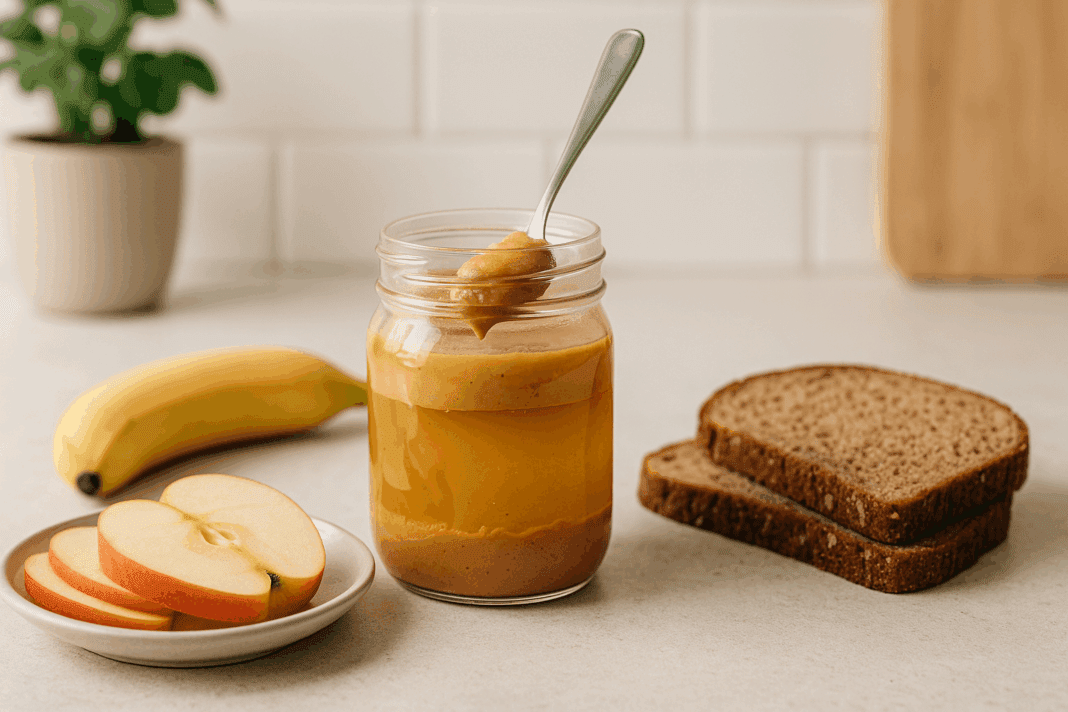In the ever-evolving world of health and nutrition, few foods evoke as much curiosity and conflicting opinion as peanut butter. Loved for its rich, creamy texture and savory-sweet flavor, peanut butter often finds itself both praised and scrutinized in diet discussions. At the heart of the debate lies a key question for health-conscious consumers: Is peanut butter healthy for weight loss? This inquiry, though seemingly simple, opens the door to a deeper exploration of nutritional science, metabolic nuance, and the importance of context in dietary choices. With insights from registered dietitians and nutrition experts, this article unpacks the complex relationship between peanut butter and weight loss, exploring how this beloved spread can fit into a balanced, evidence-based eating plan.
You may also like: Expert-Backed Weight Loss Tips for a Healthier Lifestyle: What You Need to Know for Long-Term Weight Control and Wellness
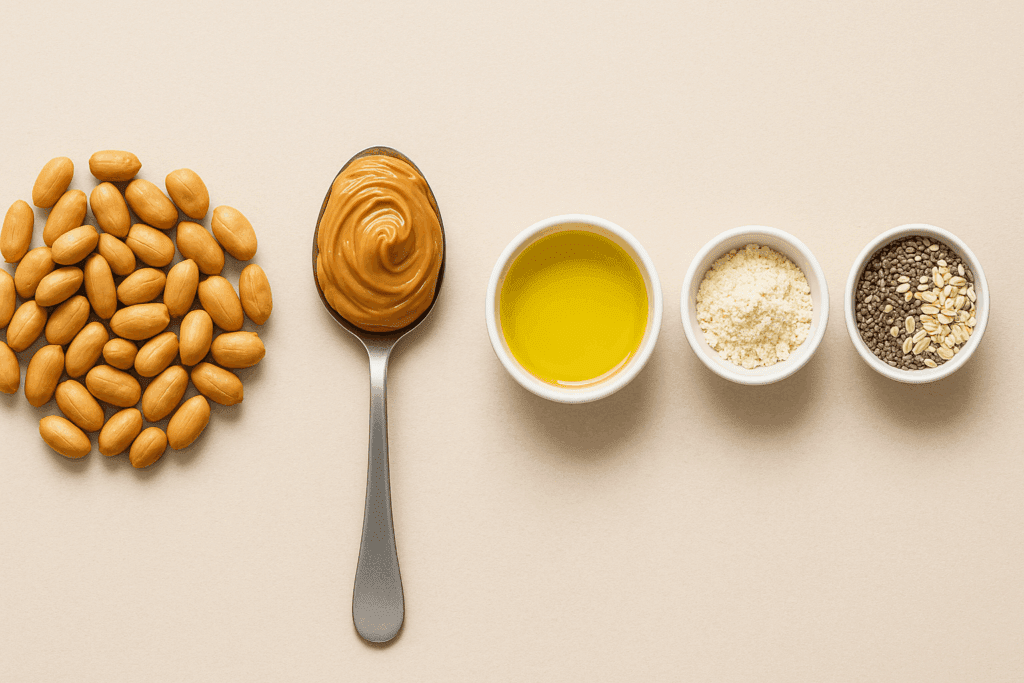
Understanding the Nutritional Profile of Peanut Butter
To evaluate whether peanut butter is good for weight loss, it is essential to begin with its nutritional composition. Peanut butter is primarily made from ground peanuts, which are naturally high in fat. One tablespoon of natural peanut butter typically contains around 90 to 100 calories, 8 grams of fat, 4 grams of protein, and 3 grams of carbohydrates, including some fiber. The fats in peanut butter are predominantly monounsaturated and polyunsaturated, both of which are considered heart-healthy. These types of fats have been associated with improved cholesterol profiles and reduced inflammation, contributing to better cardiovascular health overall.
However, peanut butter’s relatively high calorie density often causes hesitation among those trying to lose weight. The key lies in portion control and understanding the satiety it provides. Fat and protein are macronutrients that digest slowly, helping to prolong feelings of fullness. A modest amount of peanut butter, particularly when paired with fiber-rich foods such as apples or whole-grain bread, can enhance meal satisfaction and reduce the likelihood of overeating later in the day. When considering the question, “peanut butter, is it good for weight loss?”, one must account for the context of the broader dietary pattern and not just isolate peanut butter as a caloric culprit.

The Role of Satiety and Appetite Regulation
One of the most compelling arguments for including peanut butter in a weight loss diet is its ability to promote satiety. Feeling full and satisfied after meals is a critical factor in successful weight management, as it helps reduce the frequency and intensity of cravings. Protein and fat both play a significant role in this process, and peanut butter delivers on both fronts. In particular, protein helps stabilize blood sugar levels, which can prevent the spikes and crashes that often lead to hunger pangs and impulsive snacking.
Research has shown that meals incorporating healthy fats and moderate amounts of protein, like those found in peanut butter, may contribute to better appetite control. For example, a study published in the British Journal of Nutrition found that participants who consumed peanuts or peanut butter experienced improved satiety and a reduced desire to eat compared to participants who consumed high-carbohydrate snacks of equal calories. This suggests that incorporating peanut butter as part of a planned snack or meal could aid in reducing overall calorie intake throughout the day. Thus, when considering “is peanut butter healthy for weight loss,” its role in appetite regulation is a critical piece of the puzzle.
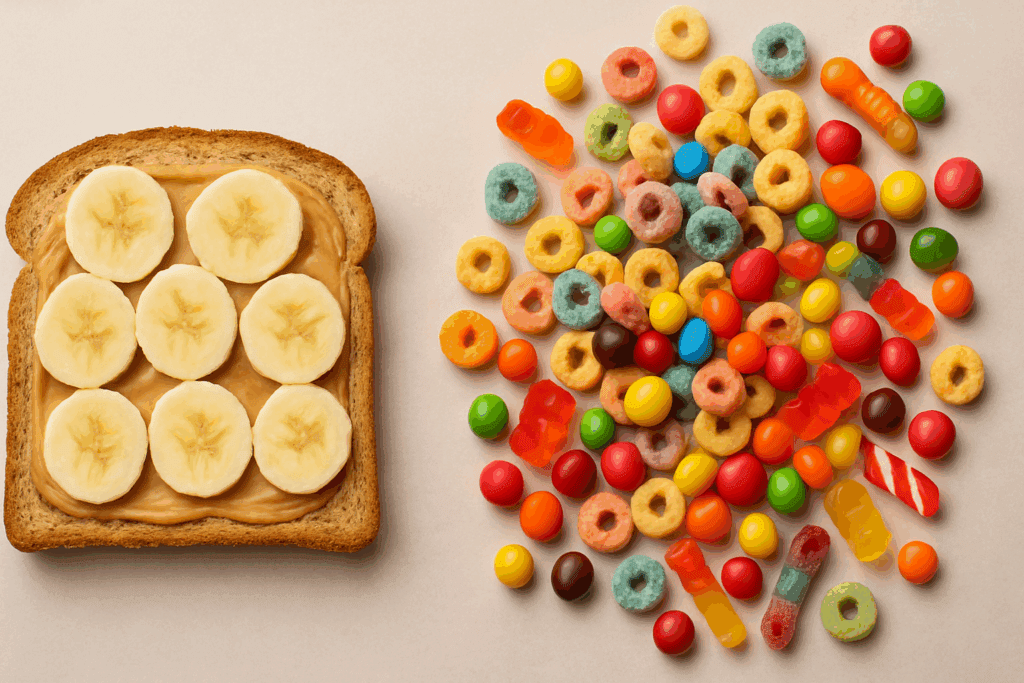
Glycemic Impact and Blood Sugar Balance
Weight management is not solely a matter of calories in versus calories out. Blood sugar regulation plays an equally important role in determining energy levels, hunger cues, and metabolic efficiency. Peanut butter, with its low glycemic index, has a minimal impact on blood sugar levels. This makes it an ideal food for those trying to maintain steady energy throughout the day, especially individuals with insulin resistance or metabolic concerns such as type 2 diabetes.
When combined with carbohydrates, peanut butter slows the absorption of sugar into the bloodstream, helping to mitigate spikes in glucose. This means that adding peanut butter to oatmeal, whole-grain toast, or a banana can help create a more balanced meal that keeps hunger at bay for longer periods. The question of “peanut butter is it good for weight loss” cannot be fully answered without acknowledging its impact on glycemic control. Stable blood sugar helps prevent the erratic energy swings that can sabotage weight loss efforts, encouraging consistent meal timing and portion awareness.
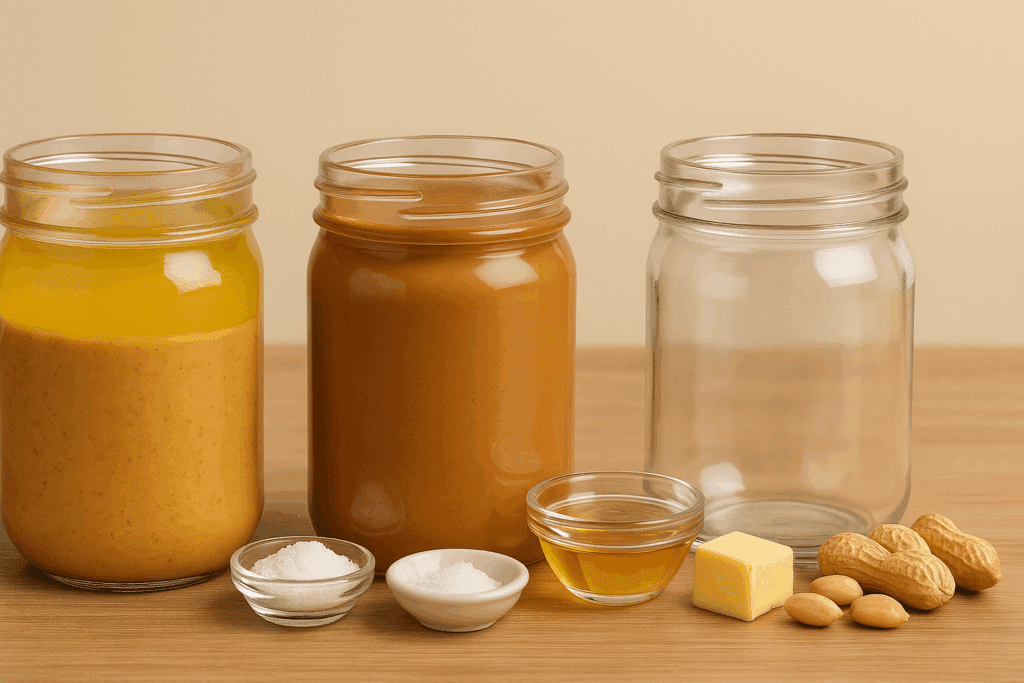
Choosing the Right Type of Peanut Butter
Not all peanut butters are created equal. Many commercial brands contain added sugars, hydrogenated oils, and excessive sodium, all of which can counteract the health benefits of peanuts themselves. When selecting peanut butter for weight loss purposes, it is crucial to opt for natural or minimally processed varieties. These typically contain only peanuts and perhaps a small amount of salt, with no added sweeteners or trans fats.
Reading nutrition labels becomes especially important here. Look for options that have fewer than 2 grams of added sugar per serving and no partially hydrogenated oils. The texture—whether creamy or crunchy—ultimately comes down to personal preference, but the ingredients list should remain short and simple. Natural peanut butter can separate over time, with oil rising to the top; this is a sign of minimal processing and can be easily remedied by stirring before use. When answering the question “is peanut butter healthy for weight loss,” product selection plays a pivotal role in determining its nutritional value and alignment with health goals.
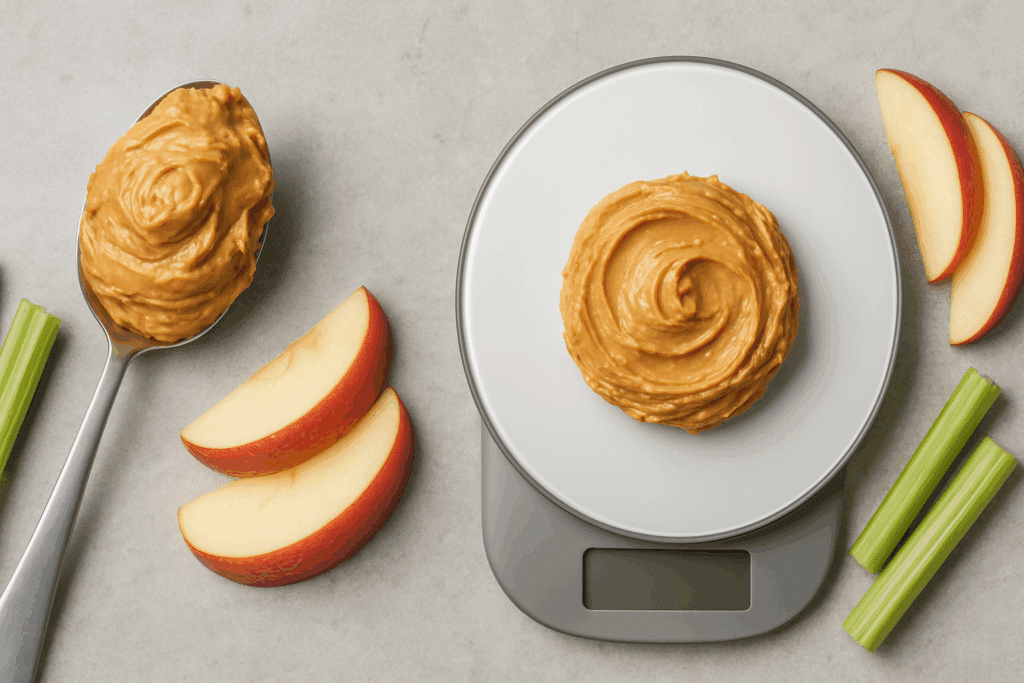
Portion Size and Caloric Density
Even the healthiest foods can become counterproductive when consumed in excessive amounts, and peanut butter is no exception. Its high fat content, while beneficial for satiety, also makes it energy-dense. This means that small quantities contain a large number of calories, and careless spoonfuls can easily add up. A standard serving size is two tablespoons, which provides about 180 to 200 calories. For individuals actively trying to create a calorie deficit for weight loss, being mindful of portion sizes is essential.
Measuring servings using a tablespoon or food scale can help establish visual references for future use. Pairing peanut butter with low-calorie, high-volume foods such as celery sticks, apple slices, or carrots can maximize satisfaction without exceeding daily caloric limits. Understanding caloric density is fundamental when evaluating whether peanut butter is good for weight loss. It encourages strategic inclusion rather than total avoidance, allowing for both enjoyment and adherence to a sustainable diet plan.
Peanut Butter in the Context of a Balanced Diet
Weight loss is most effectively achieved not through restriction, but through dietary balance and sustainability. Including moderate amounts of satisfying foods—like peanut butter—can improve compliance with healthier eating patterns over time. Peanut butter pairs well with a variety of nutrient-dense foods, contributing to meals that are not only filling but also rich in fiber, vitamins, and minerals.
For instance, a breakfast of whole-grain toast with natural peanut butter and banana offers a balance of carbohydrates, protein, and healthy fat. Similarly, a smoothie blended with spinach, Greek yogurt, berries, and a spoonful of peanut butter can provide a nutrient-packed option for those on the go. Including peanut butter in this way supports a dietary model focused on whole foods, variety, and moderation—core principles recognized by nutrition experts for promoting healthy weight management. In this context, the question “is peanut butter healthy for weight loss” finds a positive and evidence-based answer.

Expert Opinions and Clinical Evidence
Nutrition experts consistently emphasize the importance of whole dietary patterns over single food items. Registered dietitians often recommend peanut butter as a nutrient-rich food that, when used appropriately, supports both satiety and long-term adherence to a healthy eating plan. Clinical studies have echoed this sentiment. Research published in the Journal of the American College of Nutrition found that peanut consumption was associated with reduced risk of weight gain and improved nutrient intake among adults.
These findings challenge the outdated notion that all high-fat foods must be excluded from weight loss diets. Instead, they highlight the need to distinguish between types of fat and the overall quality of the food. When asked “peanut butter is it good for weight loss,” professionals point to its protein content, fiber, and healthy fat profile as evidence of its potential benefit—especially when consumed in moderation and as part of an overall nutrient-dense diet.
Common Misconceptions and Dietary Myths
Despite its many advantages, peanut butter has been subject to several misconceptions, especially within the context of dieting. One of the most prevalent myths is that all fats lead to weight gain. This oversimplification ignores the metabolic and hormonal roles that healthy fats play in the body. Monounsaturated fats, such as those found in peanut butter, contribute to hormone regulation, nutrient absorption, and cellular health—functions that are all vital to effective weight management.
Another misconception is that peanut butter must be eliminated entirely to make progress on a diet. In reality, depriving oneself of favorite foods can lead to a cycle of restriction and bingeing, undermining long-term goals. Including small amounts of indulgent foods in a controlled and mindful way is often more effective for weight loss than rigidly avoiding them. Thus, when debating “is peanut butter healthy for weight loss,” it’s important to challenge outdated thinking and embrace a more nuanced understanding of dietary science.
The Role of Physical Activity and Lifestyle Factors
It is also important to recognize that no single food determines weight loss success or failure. Weight management is a multifactorial process that involves physical activity, sleep, stress management, and overall lifestyle habits. Incorporating regular exercise, staying hydrated, and prioritizing adequate sleep all contribute to metabolic health and support the body’s ability to burn calories efficiently.
Peanut butter can serve as a convenient and nutrient-dense fuel source before or after workouts, offering a balance of energy and recovery-supporting nutrients. For those engaging in strength training or endurance sports, the protein and fat in peanut butter can aid in muscle repair and sustained energy release. The question “peanut butter is it good for weight loss” becomes more meaningful when framed within a broader lifestyle that supports overall health and well-being.
Frequently Asked Questions: Peanut Butter and Weight Loss
1. Can eating peanut butter at night help or hurt weight loss efforts? While eating late at night often raises concerns, peanut butter may actually be a smart nighttime snack when portioned properly. Its combination of healthy fats and protein supports satiety, which can prevent unhealthy late-night cravings and mindless snacking. For those asking, “peanut butter is it good for weight loss,” timing alone isn’t as critical as total daily intake and macronutrient balance. A small spoonful of natural peanut butter before bed can stabilize blood sugar overnight, reducing the chances of waking hungry. However, consistency in calorie control remains key, regardless of when you consume it.
2. How does peanut butter compare to other nut butters when trying to lose weight? Almond, cashew, and sunflower seed butters often share similar nutritional profiles, but peanut butter tends to be more calorie-efficient and protein-rich per serving. When considering “is peanut butter healthy for weight loss,” its affordability and accessibility also play a role in long-term adherence to a healthy diet. While some nut butters have marginally more vitamins like vitamin E, peanut butter offers a better protein-to-calorie ratio, which supports muscle maintenance during weight loss. It’s important, however, to watch for added sugars and oils in all nut butter varieties. In this context, peanut butter remains one of the most practical and nutritious choices for weight-conscious individuals.
3. Should peanut butter be avoided on low-carb or ketogenic diets? Peanut butter can be compatible with low-carb or even modified ketogenic plans if chosen wisely and consumed in moderation. Though it contains some carbohydrates, natural peanut butter typically has just 3–4 net grams of carbs per serving. For people wondering “peanut butter is it good for weight loss” on carb-restricted diets, the answer depends on individual macronutrient goals and the overall dietary pattern. Since fat intake is prioritized in ketogenic eating, peanut butter’s healthy fats can support ketosis while also adding flavor and satiety. Always opt for unsweetened versions to avoid unnecessary carb intake from added sugars.
4. Can peanut butter consumption affect metabolic rate or thermogenesis? Interestingly, consuming moderate amounts of peanut butter may slightly increase thermogenesis due to its protein and fat content. Digesting these macronutrients requires more energy compared to carbohydrates, which can modestly boost metabolic rate. While this effect is not a magic bullet, those exploring “is peanut butter healthy for weight loss” should note that the thermic effect of food contributes to total daily energy expenditure. In practical terms, including peanut butter in a protein-rich breakfast or post-workout meal may provide a subtle metabolic advantage. Still, consistent exercise and overall caloric balance are more influential than any single food.
5. How does peanut butter influence emotional eating or cravings? Many individuals find peanut butter comforting, and when used thoughtfully, it may help reduce emotional or stress-related eating episodes. The satisfying texture and flavor can mimic indulgence without relying on high-sugar processed foods. Those considering whether “peanut butter is it good for weight loss” from a behavioral standpoint should recognize that emotional regulation plays a huge role in dietary adherence. Using peanut butter as a planned treat or nutrient-dense snack can psychologically reinforce balance rather than restriction. This approach fosters a healthier relationship with food, reducing the likelihood of binge eating or yo-yo dieting.
6. Can peanut butter consumption improve adherence to a weight loss plan over time? Long-term success in weight management often hinges on sustainability, not short-term deprivation. Peanut butter’s rich taste and versatility can make healthy meals feel more satisfying, which is critical for maintaining a balanced eating plan. For those repeatedly asking, “is peanut butter healthy for weight loss,” it’s worth considering the psychological benefits of enjoying food. Whether added to smoothies, oatmeal, or whole grain toast, peanut butter can enhance both the flavor and nutrient density of meals, making it easier to stick with a plan. In this way, it serves as both a physical and emotional anchor in a sustainable diet strategy.
7. Is there a difference in weight loss impact between crunchy and creamy peanut butter? From a nutritional standpoint, the difference between creamy and crunchy peanut butter is minimal when ingredients are otherwise equal. Both can be part of a healthy diet, but some people report greater satisfaction with crunchy varieties due to the added texture, which may promote slower eating and greater mindfulness. When exploring “peanut butter is it good for weight loss,” this behavioral nuance can be surprisingly impactful. Eating slowly improves digestive signaling and enhances the perception of fullness, which may reduce total food intake. Thus, texture preference can subtly influence satiety and support better portion control.
8. Are there any unique benefits of peanut butter for women trying to lose weight? For women, especially during hormonal fluctuations such as premenstrual phases or menopause, peanut butter can help stabilize mood and appetite. The magnesium and healthy fats it contains contribute to hormonal balance, while its protein content supports lean body mass maintenance. Many women ask, “is peanut butter healthy for weight loss during hormonal changes?”—and the answer may be yes, particularly when used to combat sugar cravings or emotional eating. A spoonful of peanut butter paired with a piece of dark chocolate or a banana can satisfy sweet cravings in a more nutrient-dense way. This makes it an effective, balanced snack for women managing both appetite and mood during dietary transitions.
9. How might peanut butter affect gut health and digestion during weight loss? Peanut butter contains both soluble and insoluble fiber, which support gut motility and microbiome health. A healthy gut is increasingly linked to successful weight management, making this an important area to consider when evaluating whether peanut butter is good for weight loss. Prebiotic fibers in peanuts can feed beneficial gut bacteria, which in turn influence metabolism and inflammation. Additionally, the healthy fats in peanut butter support bile production, aiding fat digestion and nutrient absorption. For individuals focused on digestive wellness, integrating peanut butter into a high-fiber, plant-rich diet may enhance overall gastrointestinal health.
10. What are some innovative ways to use peanut butter in a weight-conscious diet? Beyond the usual toast or smoothie, peanut butter can be incorporated into savory dishes, dressings, or even baked goods tailored for weight loss. For example, combining peanut butter with lime juice, garlic, and soy sauce creates a flavorful, protein-rich dressing for salads or stir-fries. Another option is to mix it into plain Greek yogurt for a high-protein dessert alternative. For those wondering “peanut butter is it good for weight loss” when creativity is involved, the answer is even more encouraging—its adaptability makes healthy eating more exciting and less monotonous. By diversifying how peanut butter is used, individuals can reduce flavor fatigue and stay more engaged with their dietary goals.
Conclusion: Is Peanut Butter Healthy for Weight Loss When Used Wisely?
After a thorough exploration of peanut butter’s nutritional benefits, expert perspectives, and its role within a balanced dietary approach, the answer becomes clearer. Yes, peanut butter can be healthy for weight loss—when used strategically and mindfully. It offers a unique combination of protein, fiber, and healthy fats that supports satiety, stabilizes blood sugar, and enhances meal satisfaction. Its calorie density requires attention to portion size, but this is not a reason to avoid it altogether.
Peanut butter fits well into diverse meal plans and complements many other whole foods that promote health and longevity. As long as individuals choose high-quality, minimally processed versions and consume it as part of a well-rounded lifestyle, the question “is peanut butter healthy for weight loss” can confidently be answered in the affirmative. Rather than fearing this nutrient-dense food, embracing its potential within a thoughtful, evidence-based framework may support not only successful weight loss but also long-term wellness and dietary satisfaction.
Further Reading:
Is Peanut Butter Good or Bad for Your Health?
Ask the doctor: Why is peanut butter “healthy” if it has saturated fat?


